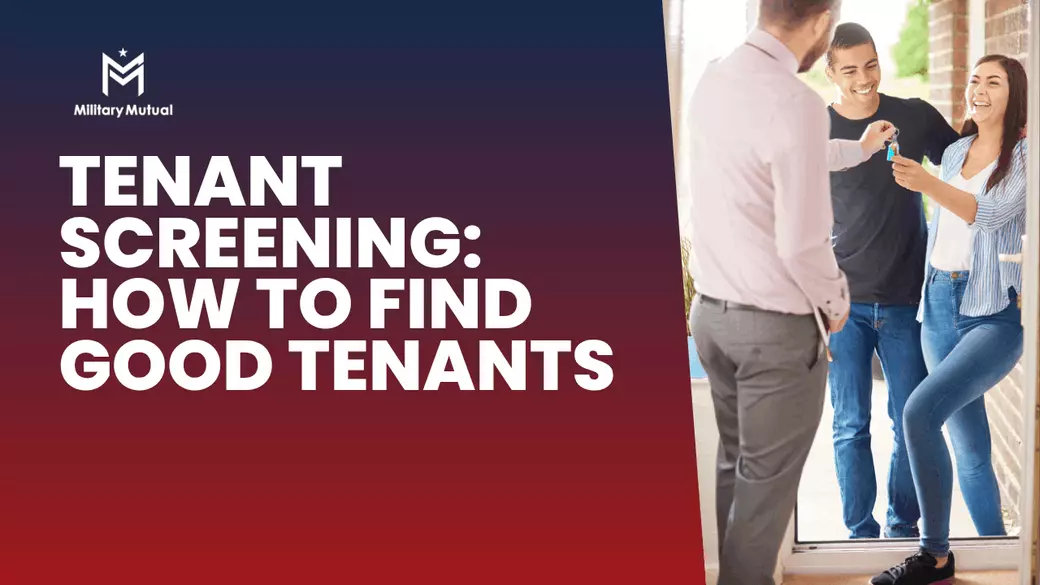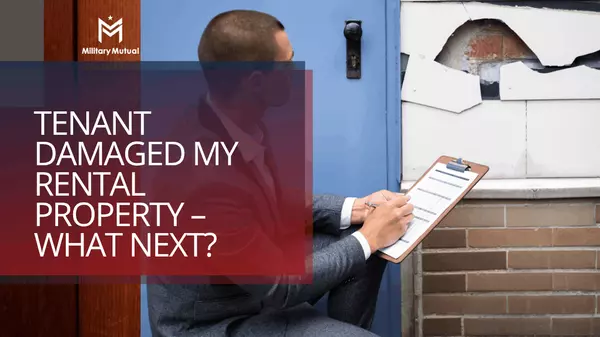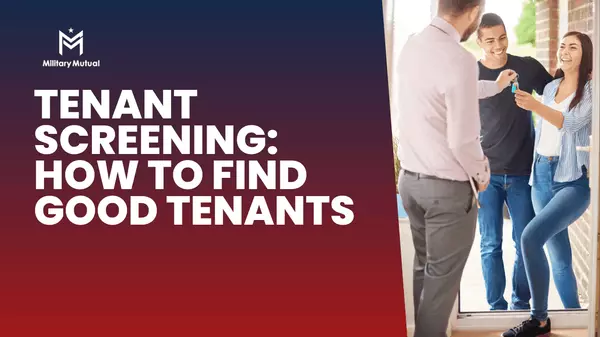Tenant Screening: How to Find Good Tenants

🧾 Tenant Screening: How to Find Good Tenants
Published: July 2025
By Derek Barksdale Founder of MIlitary Mutual
One of the most important steps in successful property management is finding the right tenant. A good tenant pays rent on time, takes care of the property, and communicates responsibly. A bad one? They can cost you thousands in damages, lost rent, and legal fees.
That’s why tenant screening is essential. Here’s a complete guide on how to screen tenants effectively and protect your rental investment.
✅ 1. Start With a Strong Rental Application
Begin the process with a thorough rental application that gathers:
-
Full name and contact information
-
Employment and income details
-
Previous landlord references
-
Social Security number (for background/credit check)
-
Consent to run credit and background checks
📋 Use online platforms like TurboTenant, RentRedi, or Avail to simplify this process.
💳 2. Run a Credit Check
A tenant’s credit report reveals how they handle financial responsibilities.
What to look for:
-
Credit score (ideally 620+)
-
Payment history
-
Debt load
-
Collections or bankruptcies
💡 Look beyond the number—consistent on-time payments matter more than a perfect score.
🔍 3. Conduct a Background and Eviction Check
You want tenants who follow the law and respect rental agreements.
Screen for:
-
Criminal history
-
Previous evictions
-
Civil judgments
-
Identity verification
📁 Use trusted services like SmartMove, RentPrep, or MyRental to ensure compliance with the Fair Credit Reporting Act (FCRA).
💼 4. Verify Employment and Income
Can they afford the rent? A general rule is that monthly income should be at least 3x the rent.
Steps:
-
Call the employer or request pay stubs/bank statements
-
Confirm job title, duration, and income
-
Self-employed? Ask for tax returns or business records
📊 Stable income = reliable rent payments.
📞 5. Check Landlord References
Talking to past landlords can give you insights no report will.
Questions to ask:
-
Did the tenant pay rent on time?
-
Was the unit kept in good condition?
-
Were there complaints or issues?
-
Would you rent to them again?
📞 Always call at least the last two landlords to avoid bias or favoritism.
🚩 6. Watch for Red Flags
Even if everything looks good on paper, stay alert for warning signs:
-
Incomplete application
-
Unverifiable income
-
Pressure to move in immediately
-
Hesitation to authorize background checks
⚠️ Trust your process more than your instincts—consistency is key.
📝 7. Use a Clear and Fair Screening Policy
To stay compliant with Fair Housing Laws, apply the same criteria to all applicants.
Tips:
-
Write out your minimum standards (credit, income, pets, smoking, etc.)
-
Stick to objective data
-
Keep records of all applications and decisions
📚 A transparent process protects you legally and builds trust with applicants.
✅ Final Thoughts: Great Tenants Start With Great Screening
Finding a responsible tenant isn’t luck—it’s a result of a clear, consistent screening process. With the right tools, communication, and policies in place, you can confidently fill your rental with qualified, respectful tenants who protect your investment.
Categories
Recent Posts










"My job is to find and attract mastery-based agents to the office, protect the culture, and make sure everyone is happy! "
